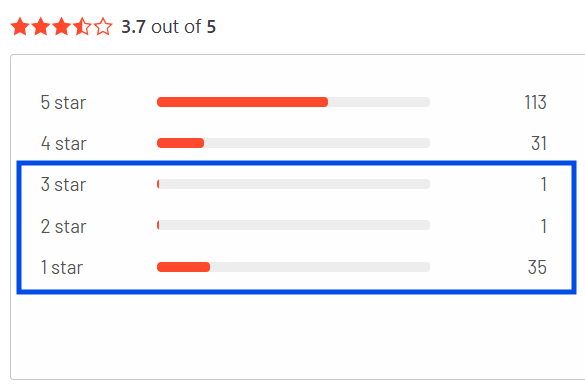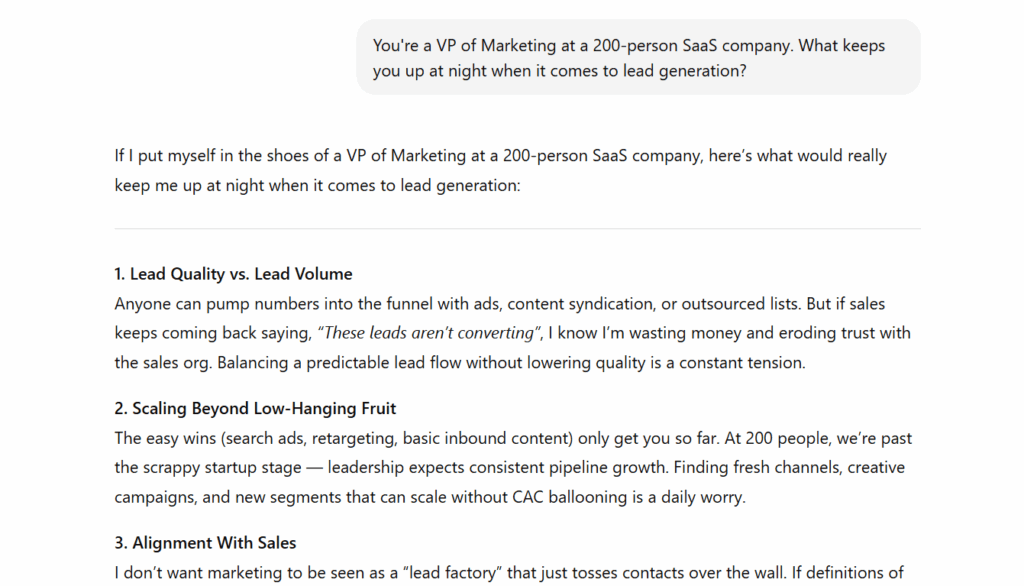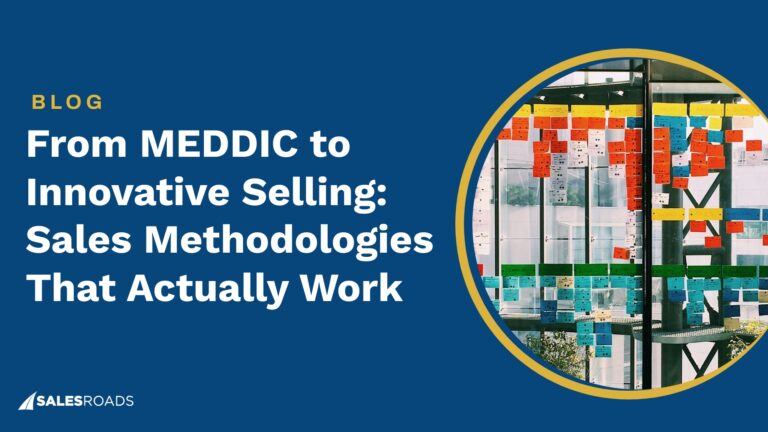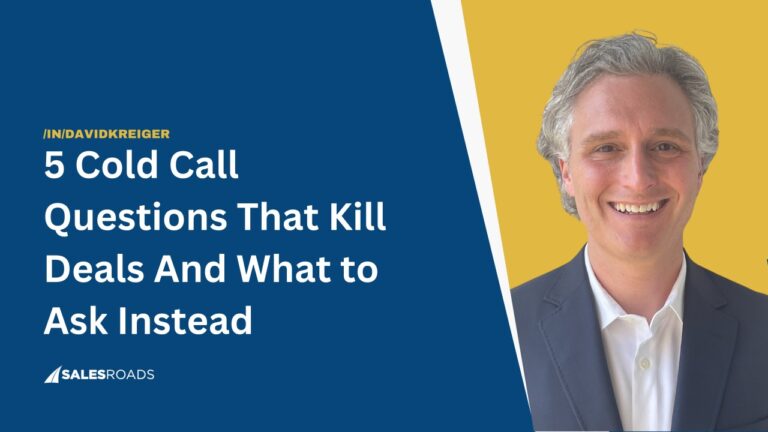Every founder wants to understand their prospects. It’s what drives your product, your messaging, and your entire GTM strategy.
We often think the only way to get this information is through direct interviews. But getting your customer to sit down for an interview is tough. People are busy. Calendars are packed.
And even if you do land a call, there’s always the risk you end up with surface-level answers.
Here are six ways I’ve found effective for uncovering your prospects’ pain points without ever getting them on the phone after building countless sales playbooks for my clients over the past 18+ years:
Lurk in Online Groups
Your prospects are already venting about their problems. You just need to know where to listen.
Join communities relevant to your buyer’s job title or industry. Reddit, Facebook groups, Slack communities, or niche forums. Wherever your ICP hangs out, that’s your research goldmine.
Don’t pitch. Don’t comment. Just observe.
Look for what people are asking, what they’re celebrating, and what’s keeping them up at night. This is how you hear the exact language your buyers use when they think no one’s selling to them.
Mine Competitor Reviews
Your competitors’ negative reviews are better than any focus group.
When prospects tear apart your competition, they’re telling you exactly what matters to them. What features are missing? What processes are broken? Where are the gaps?
Pay attention to common threads in 1/2/3 star reviews.

If five different customers complain about the same thing, that’s not a coincidence.
That’s a signal.
Study What Your Competitors Celebrate
If your competitors are bragging about solving a problem, it’s probably a real pain for your prospects.
Dig into their case studies, success stories, and marketing copy. What outcomes do they highlight? What “before” scenarios do they paint?
When a competitor says they “reduced manual reporting by 80%,” they’re telling you that manual reporting is a massive headache for your ICP.
Their wins become your research data.
Ask AI to Role-Play Your Persona
Here’s where AI gets useful for prospect research.
Give ChatGPT a specific persona description, then ask open-ended questions about their challenges. Be detailed about the role, industry, and company size.
“You’re a VP of Marketing at a 200-person SaaS company. What keeps you up at night when it comes to lead generation?”

It’s not perfect, but it’s a starting point. And unlike real prospects, AI won’t ghost you after the first question.
Find Podcasts Built for Your Audience
There’s a podcast for every persona out there. Search “podcasts for [prospect job title]” and start listening.
Hosts ask the questions you want to ask. Guests share the problems you need to understand. And it’s all packaged in a format your prospects actually consume.
Listen for recurring themes, industry trends, and the specific language your prospects use. The words they choose matter more than you think.
Listen to Sales Calls
Your sales team is already having the conversations you wish you could schedule.
Listen to recorded calls. Not for coaching, but for intelligence.
What words do prospects use to describe their challenges? What questions come up repeatedly? What solutions are they actively shopping for?
Sales conversations reveal the gap between what prospects say in marketing surveys and what they actually care about when they’re ready to buy.
Final Thoughts
What I’ve seen over the years is that most founders skip this research and jump straight to outreach. They assume they know their prospects’ pain points. Then they wonder why their GTM strategy misses the mark.
Your prospects are already telling you what they need. They’re venting in communities, leaving reviews, and sharing their challenges on podcasts.
You just have to know where to listen.
Don’t wait for the perfect customer interview setup. Start digging into these resources today.
Explore Further: Recommended Resources
On the Sell Like A Leader Podcast I welcomed Michael Maximoff, founder of Belkins.
In this episode, he explained why building successful cold email playbooks starts with understanding the psychological profile of your buyers and their journey and then tailoring your outreach to communicate value props that resonate with their specific problems.
There are plenty of nuggets here to help you better understand your prospects.
Give it a listen:










